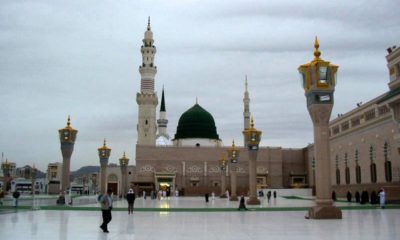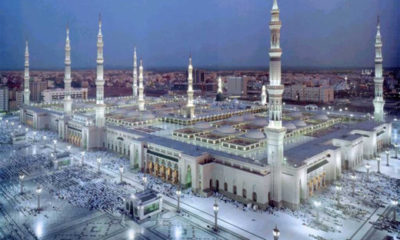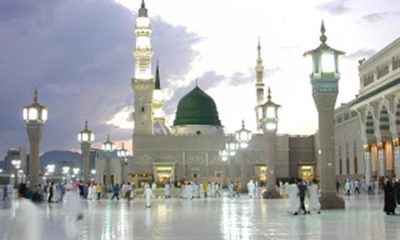applicable to Prophet Muhammad (on whom be peace), whose name was ever sung by all the Prophets and the Children of Israel throughout the history.
Indeed, it is the first Christian monk Georges of the Royal Church of Bostra to proclaim to the people of Arabia that Prophet Muhammad (Peace Be Unto Him) is the Seal of the Prophets and suggested the caravan of Mecca to take care of this blessed boy, who would soon be destined to be the crowning glory of all the Prophets.1
After the beginning of Prophetic Mission of Prophet Muhammad (Peace Be Unto Him) it was Waraka, the learned man of the Books of Moses and Jesus (Peace Be Upon Them), to swear by ALLAH: No doubt he is the Prophet of this Nation (till end times), for the glorious Law brought about by Moses, the son of Amran foretold his coming and the very Angel Gabriel who descended to Moses aforetime had descended unto him.2
Undeniably, Christ has assured and comforted his followers, ‘Whoever believes in him has believed in me, and whoever disbelieves in him has disbelieved in me.’3
The Evangelical promise of the Paraclete, or Holy Spirit, was prefigured in the name, and accomplished in the person of Muhammad, the greatest and the last of the Apostles of ALLAH (Peace Be Unto Him).4
Well, it is the Statement of the Great Catholics:
Catholic believers will also readily acknowledge that the Qur’an’s unambiguous proclamation of the One Transcendent God is reminiscent of an essential element in the message of Jesus Christ himself. Thus, Christians may be challenged in response to the message of the Qur’an to live more authentically as faithful disciples of Jesus Christ (PBUH). [See: Qur’an 61:14]
Hence, it would be preferable for Catholics to…discern whatever is true, good and beautiful in the message of Islam and to respect the spiritual path followed by Muslims; Catholic believers should acknowledge that Muhammad (PBUH) was a religious and political genius and should also be prepared to admit that through God’s grace, countless believers have been inspired by the Qur’an and the life of the Prophet Muhammad (PBUH) to live their lives in a genuine relationship with God. 5
Indeed, the Jews also, throughout the globe were certain of this fact that, “The Advent of Islam”, as avowed by Jewish historians Shlomo Sand and Yael Lotan, “was viewed by many [of them] as a liberation from persecution and even as a possible future fulfillment of the Messianic promise. [As] Rumours about the Rise of a New Prophet in the desert spread and heartened many ——————————————————————————————————————————————————————————————————————————-
- W. Montgomery Watt. Muhammad [Pbuh]: Prophet and Statesman, Oxford University Press, 1974, p. 1.
- Simon Ockley. History of the Saracens Comprising the Lives of Mohammed [Pbuh] and His Successors, London: Henry G. Bohn, 1868, pp. 12-13; and also see: Sirihi ibn Hisham, Vol. 1, p. 238.
- Ash-Shannâwi. The Ministers around the Prophet [pbuh], Houston: Dar-us-Salam, 2004, p. 166.
- Edward Gibbon. Decline and Fall of the Roman Empire, Vol. V, London: Printed for W. Strahan; and T. Cadell, 1776, p. 211.
- Gavin D’Costa. The Catholic Church and the World Religions, NY: T&T Clark International, 2011.





RSS